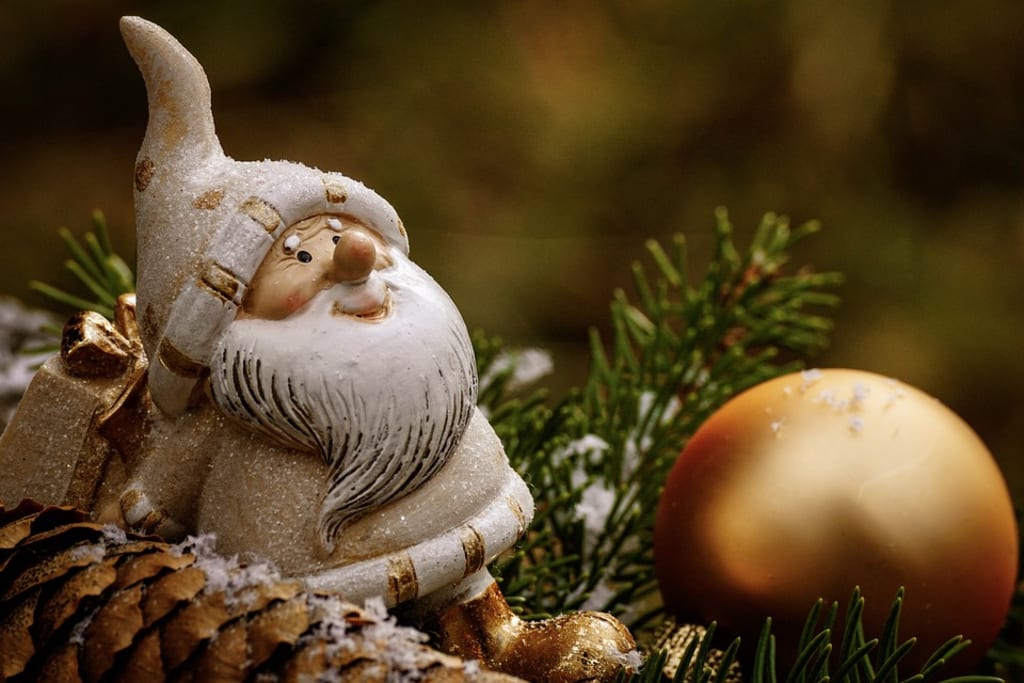Christmas A Return To Paganism
The Pagan Holliday

A kaleidoscope of memories cascades over my conscious thoughts this holiday. Oh, how I long for all those Christmases of long ago. Images of Bing Crosby and Danny Kay forever are linked to this time of year where benevolence, compassion, and kindness reemerge after a year of absence from the efforts of humanity. Somewhere along the way between my adolescence and today the Christmas essence has all but lost it's spirituality and actual meaning of why it is at this time of year mankind ought to reflect on just what the hell we have been doing to not only ourselves but to all life in this world. Sadly, though the Christmas season has morphed into something that is quite a spectacle of binge buying and over indulgence of everything imaginable. How this most hallowed of holidays has become so misinterpreted, so far removed from the real reason why Christmas is celebrated is to understand that our society is more focused on consumerism than spiritual reverence. This is why the United States leads the world in creating the image that Christmas is all about materialist agendas.
In order to fully understand how the United States now interrupts this time of year we have to understand where and how Christmas evolved. Christmas is supposed to be the time of year to honor the birth of Jesus Christ. In actuality the word Christmas translates to"Mass Of Christ." Many of the traditions that we tend to observe during this time of year began way before the birth of Jesus Christ. Over 4000 years ago the Mesopotamian's celebrated around this time of year with a 12 day festival. This was probably where the origin of the 12 days of Christmas has become so much a part of Christmas folklore. The Mesopotamian's held this festival in honor of their God, Marduk who they believed that he battled the monsters of chaos at the beginning of each winter. It is from this that the 12 days of Christmas originated.
Some 1500 years later the ancient Romans upon the arrival of each winter held a celebration in honor of their god Saturn. Again, this festival now called Saturnalia lasted 12 days. A paganistic festival where excess in everything was considered the norm. Many of today's aspects of what the Romans did during this Saturnalia have transcended the test of time. The decoration of homes as well as what is commonly now known as the Christmas tree were symbols involved in this yearly celebration. The exchanging of gifts to promote good fortune became the practice during this Roman festival. It is this one aspect, the exchanging of gifts, that has now become a dinosaurian like movement in our society today. Completely eliminating the somber reverence to the birth of Jesus Christ.
When we study history especially from the Gospel there is no indication of when Jesus was born. Many theologians and scholars today theorize that Jesus Christ was actually born in late summer or fall and not around the time when winter arrives. It was the Roman emperor Constantine who was the first Roman emperor to convert to Christianity actually incorporated the existing pagan ritual and the celebration of Jesus's birth. In this way both the Romans and the Christians would come together in celebrating both the festival of Saturnalia and the birth of Jesus Christ at the same time. Eventually, the Roman church became so successful in making the December celebration only about the birth of Christ replacing any celebrations that were held in honor of pagan gods.
How the birth, life, and death of Jesus Christ transformed the world is so remarketable that the way to honor and celebrate his birth is to be carried out with a most somber reverence yet with joyous overtones. It is these joyous overtones that evolved the mystic of Santa Claus and incorporated it into the celebration of the birth of Jesus. Many now consider the Christmas season only being associated with Santa Claus. Actually, Santa Claus most believe came about when Bishop Nicholas of Smyra in the 4th century now known as Turkey through his benevolence using his position of wealth distributed gifts to the poor homes especially those with children each and every Christmas. Thus the legend of "Good Old St. Nick"
For centuries each nation carried on with it's own Christmas traditions. But it was the Catholic Church's influence that enabled the birth of Jesus to be the dominating factor and main purpose in celebrating the birth of Jesus Christ on the 25th day of December. That is until the second half of the 20th century. As technology advanced, society stood still. In some respects particularly in the United States the moral virtue that prevailed for generations quickly dissipated. The faster new technology was introduced the further away society annihilated itself from the reason to why the birth of Jesus really maters.
It is all around us now. The advertising, the hype, and a social structure now void of any religious significance or reference to the birth of histories greatest messiah. Although some would argue that the birth of Muhammad is of equal importance. Two distinct religions came into prominence by the birth of two men; Jesus Christ, Christianity and Muhammad, Islam. Both religions are distinct and yet very much alike. It is Christianity especially in the United states that has almost completely manifested itself into self serving commercialism for materialistic objects much like the way the ancient Mesopotamian's and the ancient Romans when they celebrated and glorified the coming of winter with tributes to their gods. The United States was founded as a Christian nation where the birth of Jesus Christ as the true meaning behind the celebration of Christmas played an internal part of our heritage and our greatness. Today, sadly our heritage and our greatness continues to erode because of what our society has and is doing to the most hallowed of holidays.
.
About the Creator
Dr. Williams
A PhD in Economics. Author of National Economic Reform's Ten Articles of Confederation.






Comments
There are no comments for this story
Be the first to respond and start the conversation.